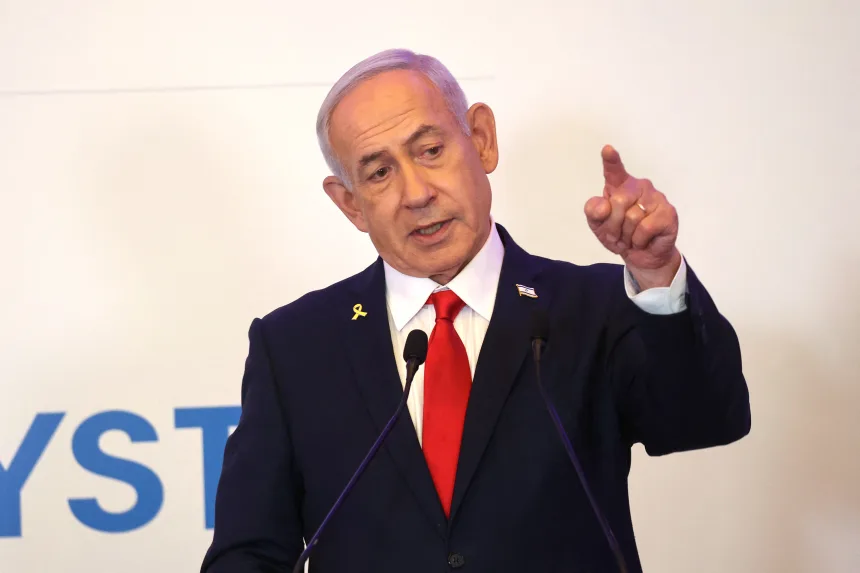TOP STORY: Netanyahu Pushes Gaza City Offensive Amid Mounting Dissent and Isolation
TEL AVIV —
Nearly two years into the Gaza war, Israeli Prime Minister Benjamin Netanyahu has pushed through a controversial plan to launch a new military operation targeting Gaza City, deepening both domestic tensions and international condemnation.
Despite strong opposition from Israel’s top military officials and warnings that the move could worsen the humanitarian catastrophe and jeopardize the lives of 50 remaining Israeli hostages, Netanyahu secured cabinet approval for a phased offensive — a plan many observers say is driven less by military strategy and more by his own political survival.
The operation, slated to begin within two months, stops short of a full occupation of Gaza — a goal long sought by Netanyahu’s far-right coalition partners, Itamar Ben Gvir and Bezalel Smotrich, who have openly threatened to collapse his fragile government if the war ends without total control of the enclave.
“The proposal led by Netanyahu and approved by the cabinet may sound good, but it is actually just more of the same,” a source close to Smotrich said. “This decision is neither moral, nor ethical, nor Zionist.”
Military Resistance and Public Fatigue
During a 10-hour cabinet meeting, Israeli military Chief of Staff Eyal Zamir laid out the army’s firm opposition to the plan. He warned that another ground invasion would not only place the hostages at greater risk but could also lead to massive Israeli casualties and further deteriorate the already dire situation in Gaza. Zamir emphasized that the Israel Defense Forces (IDF) are overstretched after nearly two years of continuous combat.
His warnings reflect a growing public sentiment: a majority of Israelis now support a ceasefire that would bring the hostages home and end the war. But Netanyahu’s actions remain out of step with both military counsel and public opinion — a fact that his critics say points to a deeper motivation: clinging to power.
A War No One Wants — Except Netanyahu
The plan to besiege only Gaza City, and not the full Strip, represents a scaled-back version of what Netanyahu previously promised. In a recent interview with Fox News, he claimed Israel aimed to “take control of all of Gaza.” Yet, his cabinet proposal narrowed that ambition, and he included a vague two-month window before launching — a move that analysts interpret as a stalling tactic, potentially leaving room for a ceasefire deal if political winds shift.
Still, the plan pleases no one:
- Far-right coalition partners view it as insufficient.
- The military establishment sees it as reckless.
- The Israeli public, weary from years of conflict, increasingly demands an end.
Global Fallout: Israel’s Isolation Deepens
International reaction has been swift and severe. The ongoing siege, worsening humanitarian crisis, and Netanyahu’s apparent defiance of global norms have led to mounting diplomatic costs.
Most notably, Germany — Israel’s second most critical ally after the U.S. — announced it is suspending certain military exports, signaling a potential domino effect among European nations. While the U.S. under the Trump administration continues to offer near-unconditional support, global outrage over starvation, displacement, and civilian deaths in Gaza has eroded Israel’s legitimacy on the world stage.
A Self-Serving Offensive
Analysts argue that Netanyahu’s latest move is not about achieving military victory or freeing hostages — but about buying time. Time to avoid choosing between ending the war, which would anger his far-right allies, or escalating it further, which would worsen Israel’s international standing.
“This isn’t strategy — it’s survival,” one senior Israeli political commentator noted. “Netanyahu is trapped, and he’s dragging the country, and Gaza, deeper into that trap with him.”
As hostages remain in captivity, IDF forces face exhaustion, and Gaza’s humanitarian crisis grows worse by the day, Netanyahu’s decision isolates him from allies abroad, his own military, and the Israeli public — leaving only one clear beneficiary: himself.
